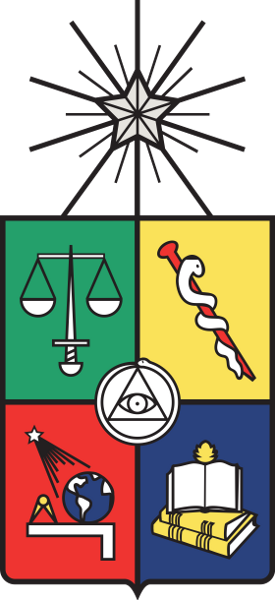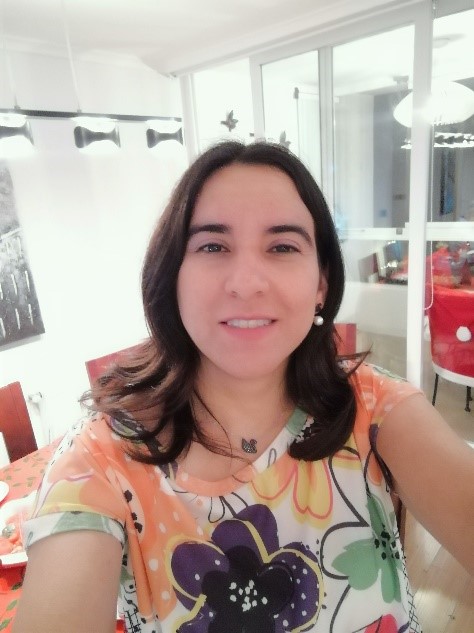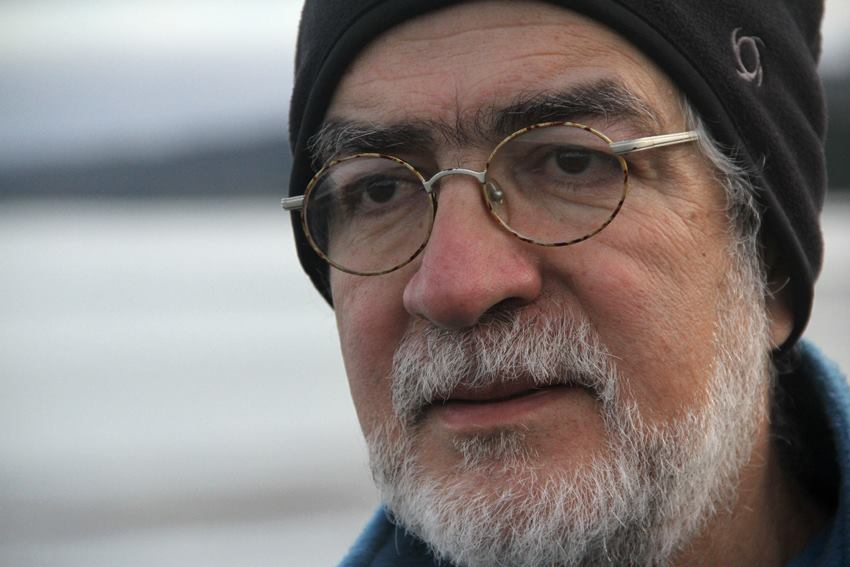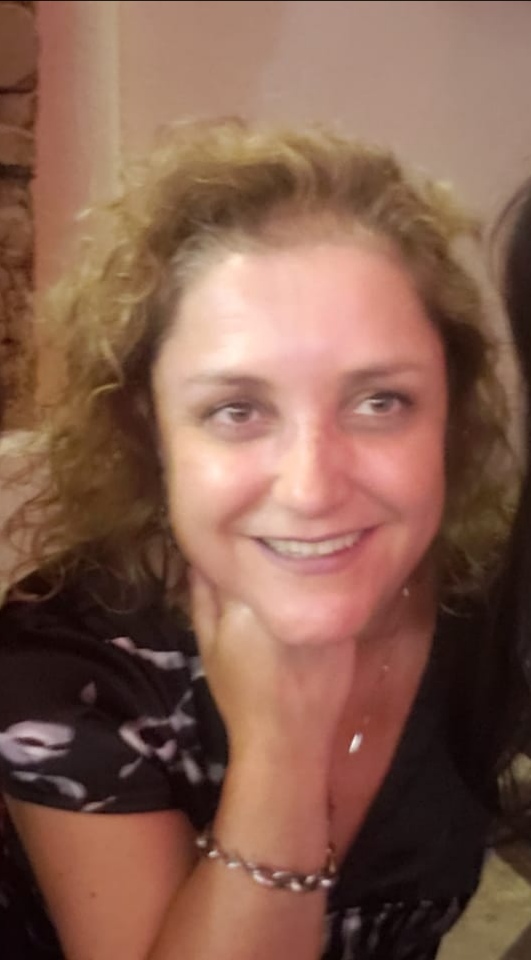Current Project: 2024 - 2027
RLA 7/028 – Strengthening Regional Capabilities on the Application of Nuclear and Isotopic Techniques to Increase Knowledge about Stressors that Affect Marine and Coastal Sustainable Management (ARCAL CLXXXIX)
Previous Projects:
RLA 7/025 – Strengthening Capacities in Marine and Coastal Environments Using Nuclear and Isotopic Techniques (2020-2023).
RLA 7/022 – Strengthening Regional Monitoring and Response for Sustainable Marine and Coastal Environments (ARCAL CXLV) (2018-2019).
RLA 7/014 – Designing and Implementing Systems for Early Warning and Evaluation of the Toxicity of Harmful Algal Blooms in the Caribbean Region, Applying Advanced Nuclear Techniques, Radioecotoxicological Evaluations and Bioassays (2009-2012).
Participating Institutions:
Laboratorio de Toxinas Marinas – Universidad de Chile


Research Areas:
- Harmful Algal Blooms (HABs) and Marine Biotoxins.
- Microplastic Contamination.
THE PROBLEM
The coast of Chile and the inland sea in fjords and channels provide the mussel farming industry with a favorable setting for the development of its productive activity. In 2017, 80 thousand tons of mussels (Mytilus chilensis) were exported (US$ 210 million), from more than 320 thousand tons landed. The industry represents 7% of the regional GDP and directly employs some 16,000 people. For 2018, the GDP in Chile was €252,474 million. Consequently, the protection of the oceans and their biodiversity is of great importance for sustainable development, as it ensures food self-sufficiency for the coming decades (SDGs 2 and 14).
In the biodiversity of this scenario, HABs are a phenomenon of natural origin and characteristic of ecosystem diversity, which, under certain conditions, constitute a biological risk for mussels and other species in crops and natural banks, since they accumulate paralyzing, amnesic or diarrheal biotoxins with severe impacts on human health and local economies. Deepening scientific knowledge of these phenomena and their reflection in health regulations is certainly a country challenge.
An emerging risk is the growing pollution by microplastics in coastal environments, whose impacts on the environment and fishery resources have not yet been determined.
Due to the serious effects of marine pollution and the proliferation of HABs and MPs, these issues have been included in the 2020-2025 National Program Framework (MPN) and are related to the 2030 Sustainable Development Program.
INFORMATION FOR ACTION
Los programas permanentes de monitoreo de FANs y de biotoxinas han sido aplicados por el Ministerio de Salud desde 1970. El Servicio Nacional de Pesca y Acuicultura (Sernapesca) inició el Programa de Sanidad de Moluscos Bivalvos (PSMB) en 1994. Estos mitigan impactos económicos y protegen, la salud de la población. Periódicamente se monitorea sitios de cultivo y bancos naturales ante riesgos toxicológicos (VPM, VAM y BML) y del fitoplancton para detectar tempranamente la presencia de agentes causales de toxicidad u otros patógenos que pongan en riesgo la salud de los consumidores de productos del mar y a la actividad productiva. Las biotoxinas deben ser detectadas con métodos oficiales acreditados entre los que se cuenta técnicas analíticas de alta sensibilidad y precisión que aseguran información válida a la autoridad sanitaria.
NSSP sampling data and results are managed by the mr-SAT (Red Tide Early Warning System) platform. This platform, designed and maintained on the web by LABTOX-UChile, since 2009 allows authorities to make timely health decisions and disseminate information among program participants and the general public. This information makes it possible to generate maps and establish the months of greatest health risk.
LABTOX-UChile actively participates in REMARCO activities. In this context, it has participated in the creation of professional competencies and capacities with member institutions, offering training internships in the area of marine biotoxins and reciprocal collaboration with several of the participating countries. It has also put knowledge and technological capabilities into developing the web platform for the administration and dissemination of microplastic samples, to which those corresponding to the set of stressors object of the Network will also be added.
Country Members:
Benjamín Suárez-Isla. Degree in Chemistry, PhD in Biology.

Laboratorio de Toxinas Marinas, Facultad de Medicina, Universidad de Chile (LABTOX-UCHILE).
Role in the Project: National Coordinator Chile.
Contact info: bamsuarez@gmail,com / (56) 29786308
Professor of the Faculty of Medicine of the Universidad de Chile. He has been director of the Physiology and Biophysics Program and of the Institute of Biomedical Sciences of said Faculty.
He began to dedicate himself in 1994 to the study of marine toxins in Chile with the support of Conicyt-Fondef projects of applied sciences.
In 1995 he organized the Laboratorio de Toxinas Marinas of the Institute of Biomedical Sciences of which he is the director. In 2002 and as a response to the toxic outbreak of paralyzing toxins that year in Chiloé, he set up, together with an interdisciplinary team, the Castro headquarters (Chiloé Island) of the Laboratorio de Toxinas Marinas. His research has received the support of Conicyt-Fondef, the International Atomic Energy Agency since 2002 and the Ministry of Health.
He has acted as an international consultant and his work is reflected in international publications and public policy. The topics addressed have been the development and validation of methods for detecting marine toxins, detoxification processes for contaminated molluscs and the development of mitigation strategies for the impacts of marine toxins.
María Fernanda Barrera del Valle. Veterinarian, MSc. cs. Animals and Veterinary.

Laboratorio de Toxinas Marinas, Facultad de Medicina, Universidad de Chile (LABTOX-UCHILE).
Role in the Project: Technical Collaborator of the Components: HAB and Microplastics
Contact info: mferbarr@uchile.cl / (56) 29786308
She currently works as the Quality Manager of the Laboratorio de Toxinas Marinas, Castro campus of Universidad de Chile, with experience in the area of Harmful Algal Blooms (HAB) and marine toxins.
With 11 years of work in the Laboratory, she has specialized in the implementation of Quality Management Systems according to ISO 17025: 2017. She participated in the implementation and accreditation of the Laboratorio de Toxinas Marinas according to this Standard.
She has experience in the implementation and validation of analytical techniques by HPLC and LC-MS/MS for the detection of marine toxins.
She currently participates, in addition, in the study of marine pollution by microplastics.
Daniel Carrasco Palma. Veterinarian.

Laboratorio de Toxinas Marinas, Facultad de Medicina, Universidad de Chile (LABTOX-UCHILE).
Role in the Project: Technical Collaborator of the Components: HAB and Microplastics and Responsible for the REMARCO website and Facebook.
Contact info: dcarrasco@uchile.cl / (56) 65 2635244
Head of the Laboratorio de Toxinas Marinas, Castro campus of the Universidad de Chile, with experience in the area of Harmful Algal Blooms (HAB) and marine toxins, his work has been developed mainly in implementing and validating methodologies for the detection of marine toxins (HPLC and LC-MS/MS), within the framework of a Laboratory accredited under ISO/IEC-17025:2017. He currently participates, in addition, in the study of marine pollution by microplastics.
Víctor Contreras Scorsoni. Professor, Systems Analyst, MSc. in Latin American Musicology.

Laboratorio de Toxinas Marinas, Facultad de Medicina, Universidad de Chile (LABTOX-UCHILE).
Role in the Project: Communication Focal Point. Responsible for the Microplastics Web Platform.
Contact info: vcontreras@uchile.cl / (56) 65 2635244
In charge of Information and Communication Technologies of the Laboratorio de Toxinas Marinas of the Universidad de Chile (based in Castro, Chiloé). He is the author of the Chilean Red Tide Early Warning System (mrSAT) and has developed the current Microplastics Web Platform for the RLA7022 project.
Trained at the Universidad de Chile and the Universidad ARCIS in the areas of arts and anthropology of music, he has taught at the university in the field of education and information technologies. He is a member of the International Council for Traditional Music (UNESCO), a founding member of the Chilean Society of Ethnomusicology and the Corporación Chiloé Patrimonio.
Carlos García. Bachelor of Chemistry, MSc. Biomedical Sciences, PhD. Biotechnology.

Laboratorio de Toxinas Marinas, Facultad de Medicina, Universidad de Chile (LABTOX-UCHILE).
Role in the Project: Technical Collaborator of the Components: HAB and Oceanic Acidification.
Contact info: cgarcia@med.uchile.cl / (56) 29786308
Professor of Chemistry graduated from Universidad de la Austral de Chile (1997), Master in Biomedical Sciences from the Faculty of Medicine of Universidad de Chile (2001). Doctor in biotechnology from the Universidad Pablo de Olavide, Seville Spain (2016). He has collaborated and directed in projects of Science and technology (I + D + I). He is currently a Researcher at the Laboratorio de Toxinas Marinas of the Universidad de Chile on issues of Ecotoxicology, Chemistry and Biochemistry of marine toxins associated with harmful algal blooms (HAB & cyanoHAB).
M. Loreto Olivares Cerda. Engineer in Business Administration.

Laboratorio de Toxinas Marinas, Facultad de Medicina, Universidad de Chile (LABTOX-UCHILE).
Role in the Project: Project Management.
Contact info: mlolivar@med.uchile.cl / (56) 29786903
Responsible for Administration of Laboratorio de Toxinas Marinas, with experience in preparation, analysis and management of national and international projects.
Quality Manager of the Laboratorio de Toxinas Marinas, Santiago Headquarters, with knowledge in management systems and Auditing under ISO/IEC 17025:2017 Standard “General requirements for the competence of testing and calibration laboratories”.
Ignacio Rubilar Donoso. Veterinarian.

Laboratorio de Toxinas Marinas, Facultad de Medicina, Universidad de Chile (LABTOX-UCHILE).
Role in the Project: Technical Collaborator of the Components: HAB and Microplastics.
Contact info: irubilar@med.uchile.cl / (56) 29786425
Head of the Laboratorio de Toxinas Marinas, Santiago headquarters, with experience in the area of Harmful Algal Blooms (HAB) and Marine Toxins, implementation development and validation of Marine Toxin detection methodologies using HPLC-UV and HPLC-FD.
Within the framework of a laboratory accredited under the ISO/IEC-17025:2017 standard.
Part of the team for Sampling and Characterization of Microplastic Contamination in Coastal Environments.
Progress and Challenges
It is necessary to establish monitoring programs for beaches and fishing resources in relation to contamination by microplastics in coastal areas, with the aim of collecting baseline information and generating evidence-based health policies.
